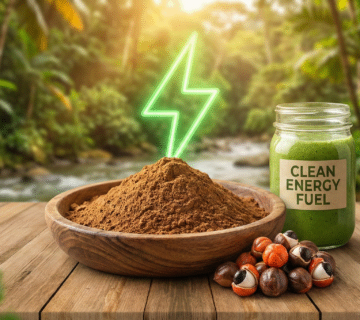Organic bee pollen granules are gaining recognition as one of the most promising superfoods, and for good reason. Originally consumed by young bees to support their growth, bee pollen is now produced and consumed by humans as a dietary supplement. Its nutrient-dense composition has sparked interest in its potential to promote overall well-being and address various health concerns.
What is Organic Bee Pollen?
Bee pollen is a mixture of flower pollen, nectar, enzymes, honey, wax, and bee secretions. Bees collect pollen from plants and pack it into granules using a bit of honey or nectar to make it sticky. These granules are then stored in the hive, where they are consumed by young bees as a source of nutrition. The organic variety of bee pollen refers to pollen collected from bees that have foraged in areas free from pesticides and other chemicals, ensuring that the final product is pure and natural.
Nutritional Profile of Bee Pollen
What makes organic bee pollen granules stand out as a superfood is their exceptional nutritional profile. They are rich in:
- Proteins: Bee pollen contains all nine essential amino acids, making it a complete protein source. In fact, it’s estimated that bee pollen is about 25-30% protein by weight, which is impressive for a natural food.
- Vitamins and Minerals: Bee pollen is packed with essential vitamins, including B vitamins (B1, B2, B6), vitamin C, and vitamin E. It also contains important minerals like calcium, magnesium, and zinc.
- Antioxidants: The high antioxidant content in bee pollen, including flavonoids and carotenoids, helps to protect the body from oxidative stress and inflammation.
- Enzymes: Bee pollen is rich in enzymes that aid in digestion and improve the body’s absorption of nutrients.
Health Benefits of Organic Bee Pollen Granules
The impressive nutritional content of organic bee pollen granules translates into a wide array of potential health benefits:
- Immune System Support: Bee pollen is believed to boost the immune system, helping the body fight off infections and illnesses. Its high antioxidant content also contributes to reducing inflammation and combating free radicals.
- Energy Boost: Due to its high protein content and abundance of vitamins and minerals, bee pollen can provide a natural energy boost. This makes it a popular supplement for athletes and those leading active lifestyles.
- Allergy Relief: Some studies suggest that consuming local bee pollen may help reduce symptoms of seasonal allergies by building up resistance to local pollen. However, this should be done with caution and under the guidance of a healthcare professional.
- Skin Health: The vitamins, minerals, and antioxidants in bee pollen can promote healthy skin, helping to reduce inflammation, redness, and acne. It is also used in various skincare products for its rejuvenating properties.
- Digestive Health: The enzymes present in bee pollen aid in digestion and nutrient absorption, supporting overall digestive health.
Incorporating Organic Bee Pollen into Your Diet
Organic bee pollen granules are versatile and can be easily incorporated into your daily diet. They can be sprinkled on top of yogurt, cereal, or smoothie bowls, mixed into shakes or juices, or even added to baked goods for an extra nutritional punch. Start with small amounts to assess your body’s response and gradually increase the dosage.
Conclusion
Organic bee pollen granules are more than just a trendy superfood; they are a powerhouse of nutrition that offers a range of health benefits. Whether you’re looking to boost your immune system, increase your energy levels, or support your skin health, adding bee pollen to your diet could be a natural and effective solution. As with any supplement, it’s important to consult with a healthcare provider, especially if you have allergies or other health conditions. With its rich history as a growth-supporting food for bees, bee pollen is now making its mark as a valuable addition to human diets.




